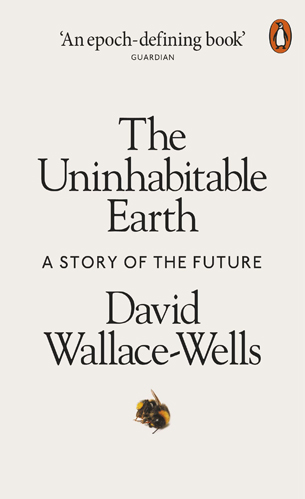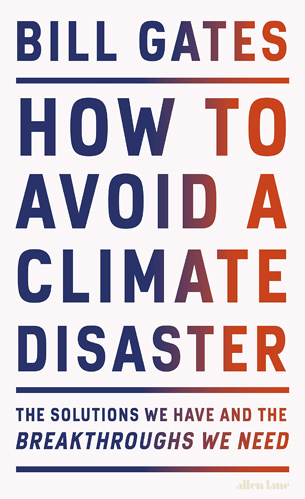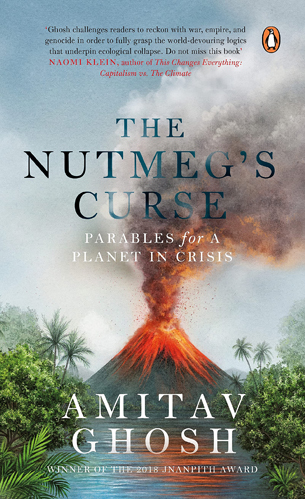Category
- Discounted Books
- English Book Bundles
- University Magazines
- சிறுவர்களுக்கான புத்தகங்கள்
- Children Books
- English Books
- Current Affairs
- Military & Intelligence
- Short Stories
- Fiction
- Poetry
- Environment & Nature
- Science
- Medicine
- Linguistics
- Atheism & Agnosticism
- (Auto)Biography & Memoir
- Business & Management
- Creativity
- Economics
- Education & Research
- Health & Nutrition
- History
- Humor
- Love & Relationships
- Parenting
- Personal Development
- Personal Finance
- Philosophy
- Politics
- War
- Psychology
- Religion & Spirituality
- Society & Culture
- Sports
- Travel & Adventure
- Technology & the Future
- True Crime
- Women Empowerment
- தமிழ் Books
- Book Bundles ( தமிழ் )
- சட்டம்
- இயற்கை
- கட்டுரை
- கணிதம்
- பயணக்குறிப்புகள்
- விவசாயம்
- அரசியல்
- ஆரோக்கியம்
- உளவியல்
- புனைவு
- காதல் மற்றும் உறவு
- சமூகவியல்
- சுயசரிதைகள் மற்றும் நினைவுகள்
- சுயமுன்னேற்றம்
- தத்துவஞானம்
- தொழில்நுட்பம் & எதிர்காலம்
- பொருளாதாரம்
- போர்
- பணம்
- மதம் & ஆன்மீகம்
- வணிகம் & மேலாண்மை
- வரலாறு
- விஞ்ஞானம் & பிரபல அறிவியல்
- விளையாட்டு
- சினிமா
- கவிதைகள்
- குழந்தை வளர்ப்பு
- குற்றம்
- மருத்துவம்
- மொழி
Product categories
- Children Books
- Discounted Books
- English Book Bundles
- English Books
- (Auto)Biography & Memoir
- Atheism & Agnosticism
- Business & Management
- Creativity
- Current Affairs
- Economics
- Education & Research
- Environment & Nature
- Fiction
- Health & Nutrition
- History
- Humor
- Linguistics
- Love & Relationships
- Medicine
- Military & Intelligence
- Parenting
- Personal Development
- Personal Finance
- Philosophy
- Poetry
- Politics
- Psychology
- Religion & Spirituality
- Science
- Short Stories
- Society & Culture
- Sports
- Technology & the Future
- Travel & Adventure
- True Crime
- War
- Women Empowerment
- University Magazines
- சிறுவர்களுக்கான புத்தகங்கள்
- தமிழ் Books
- Book Bundles ( தமிழ் )
- அரசியல்
- ஆரோக்கியம்
- இயற்கை
- உளவியல்
- கட்டுரை
- கணிதம்
- கவிதைகள்
- காதல் மற்றும் உறவு
- குற்றம்
- குழந்தை வளர்ப்பு
- சட்டம்
- சமூகவியல்
- சினிமா
- சுயசரிதைகள் மற்றும் நினைவுகள்
- சுயமுன்னேற்றம்
- தத்துவஞானம்
- தொழில்நுட்பம் & எதிர்காலம்
- பணம்
- பயணக்குறிப்புகள்
- புனைவு
- பொருளாதாரம்
- போர்
- மதம் & ஆன்மீகம்
- மருத்துவம்
- மொழி
- வணிகம் & மேலாண்மை
- வரலாறு
- விஞ்ஞானம் & பிரபல அறிவியல்
- விளையாட்டு
- விவசாயம்
Tag: Climate change
Showing all 3 results
-
The Uninhabitable Earth: A Story of the Future
Rs. 2,490.00Original price was: Rs. 2,490.00.Rs. 1,990.00Current price is: Rs. 1,990.00.or 3 X Rs.663.33 with Read more
Read moreDavid Wallace-Wells
- SUNDAY TIMES AND THE NEW YORK TIMES BESTSELLER
- Selected as a Book of the Year 2019 by the Sunday Times, Spectator and New Statesman
- A Waterstones Paperback of the Year
- Shortlisted for the Foyles Book of the Year 2019
- Longlisted for the PEN / E.O. Wilson Literary Science Writing Award
- Goodreads Choice Award Nominee for Science & Technology (2019)
In crystalline prose, Wallace-Wells provides a devastating overview of where we are in terms of climate crisis and ecological destruction, and what the future will hold if we keep on going down the same path. Urgently readable, this is an epoch-defining book. — Matt Haig, ‘The Book that Changed My Mind’ ― The Guardian
The most terrifying book I have ever read . . . a meticulously documented, white-knuckled tour through the cascading catastrophes that will soon engulf our warming planet. ― The New York Times
A must-read. It’s not only the grandkids and the kids: it’s you. And it’s not only those in other countries: it’s you. — Margaret Atwood ― Twitter
Riveting . . . Some readers will find Mr Wallace-Wells’s outline of possible futures alarmist. He is indeed alarmed. You should be, too. ― The Economist
There is much to learn from this book. From media and scientific reports of the past decade, Wallace-Wells sifts key predictions and conveys them in vivid prose. — David George Haskell ― The Observer
If there are people around to write history books in the future, they will look back at the @ExtinctionR protestors and think they were the sanest people of our time. Read The Uninhabitable Earth by @dwallacewells if you don’t know why. ― Johann Hari, Twitter
Yes, this book will scare you, but it will also prompt you to take action to ensure the damage we as humans have done to the planet is stopped. ― Stylist, Your Guide to the Best Books of 2019
-
How to Avoid a Climate Disaster: The Solutions We Have and the Breakthroughs We Need
Rs. 2,990.00Original price was: Rs. 2,990.00.Rs. 2,590.00Current price is: Rs. 2,590.00.or 3 X Rs.863.33 with Read more
Read moreBill Gates
“I wrote this book because I don’t just see the problem of climate change; I also see the opportunity to solve it” – Bill Gates
Gates’ book is compulsively readable. His ambition was to ‘cut through the noise’ and give consumers better tools for understanding what works, an ambition he meets admirably. It more than that, however. Gates can get an audience with anyone, can marshal almost limitless resources, and is dogged in the detail. The result – particularly in the wake of the Trump presidency – is thrilling — Emma Brockes ― The Guardian
Of the many books I have come across recently making the case that climate change will be a catastrophe, but we can do something about it, this is the best … The relentless practicality of the book combined with Gates’s firm faith in innovation do not promote despair. He exudes optimism; things will get better, not least because, as John Lennon once sang, they can’t get no worse — Bryan Appleyard ― Sunday Times
It is mostly concerned with solutions rather than problems. This already marks it out as something of an outlier within environmental literature… if you’re after an approachable book about what needs to happen next, this is a great place to start — Ed Conway ― The Times
Bold but well argued … a compelling explanation of how the world can stop global warming by reducing greenhouse gas emissions effectively to zero… [Gates] is a serious and genuine force for good on climate change — Bob Ward ― Observer
How to Avoid a Climate Disaster is clear, concise on a colossal subject, and intelligently holistic in its approach to the problem. — Adam Vaughan ― New Scientist
It all makes for a meaty manifesto which Gates hopes can offer sufficient variety to appeal across political divides and “shift the conversation” away from the polarisation and misinformation that has clouded discussion about climate change up until now. — Martin Bentham ― Evening Standard
Gates’s carefully packaged nuggets of information are not only easy to understand, but they aim to provide the reader with practical tools to engage with the density of climate change information … What Gates has achieved with his book is something rare in the swelling arena of popular climate literature. The Microsoft co-founder turned philanthropist has compiled a solutions-based strategy that is as informed on the commercial realities of scaling new technologies as it is on the environmental consequences of not doing so. — Daniel Murray ― The Business Post
The most refreshing aspect of this book is its bracing mix of cold-eyed realism and number-crunched optimism … Ultimately [Gates’s] book is a primer on how to reorganise the global economy so that innovation focuses on the world’s gravest problems. It is a powerful reminder that if mankind is to get serious about tackling them, it must do more to harness the one natural resource available in infinite quantity-human ingenuity. ― Economist
Gates plots out, in patient, simple prose, a pathway that would allow us to reduce carbon emissions from the current 51 billion tonnes a year to zero by 2050. — Thomas Jones ― London Review of Books
-
The Nutmeg’s Curse: Parables for a Planet in Crisis
Rs. 2,990.00or 3 X Rs.996.67 with Read more
Read moreAmitav Ghosh
What do you do when the subject matter of life on this planet seems to lack . . . life? Your read The Nutmeg’s Curse, which eschews the leaden language of climate expertise in favor of the re-animating powers of mythology, etymology, and cosmology. Ghosh challenges readers to reckon with war, empire, and genocide in order to fully grasp the world-devouring logics that underpin ecological collapse. We owe a great debt to his brilliant mind, avenging pen, and huge soul. Do not miss this book-and above all, do not tell yourself that you already know its contents, because you don’t. — Naomi Klein, author of This Changes Everything: Capitalism vs. The Climate
In this brilliant book, aflame with insight and moral power, Ghosh shows that in the history of the nutmeg lies the path to our planetary crisis, twisting through the horrors of empire and racial capitalism. The Nutmeg’s Curse brings to life alternative visions of human flourishing in consonance with the rest of nature-and reminds us how great are the vested interests that obstruct them. — Sunil Amrith, author of Unruly Waters
The Nutmeg’s Curse elegantly and audaciously reconceives modernity as a centuries-long campaign of omnicide, against the spirits of the earth, the rivers, the trees, and even the humble nutmeg, then makes an impassioned argument for the keen necessity of vitalist thought and non-human narrative. With sweeping historical perspective and startling insight, Ghosh has written a groundbreaking, visionary call to new forms of human life in the Anthropocene. An urgent and powerful book. — Roy Scranton, author of Learning to Die in the Anthropocene: Reflections on the End of a Civilization
It’s widely recognized that the climate crisis is multi-dimensional, yet American cultural conversations about it are mostly stuck in its scientific, technological, and economic dimensions. In this tour de force, Amitav Ghosh defiantly moves the conversation into the realms of history, politics, and culture, insisting that we will never resolve our planetary crisis until we acknowledge that the “great acceleration” of the past fifty years is part of a larger historical pattern of omnicide. For centuries, the dominant global powers have seen Earth–its plants, its animals, and its non-white peoples–as brute objects: mute, without agency, and available for the taking and killing. The solution to the climate crisis, Ghosh insists, is not injecting particles into the stratosphere to block the sun, or even to build a bevy of solar farms (as important as the latter is). Rather, the solution lies in re-engaging with the vital aspects of life, in all its capaciousness, and in doing so move past our long history of destruction and into true sustainability. — Naomi Oreskes





